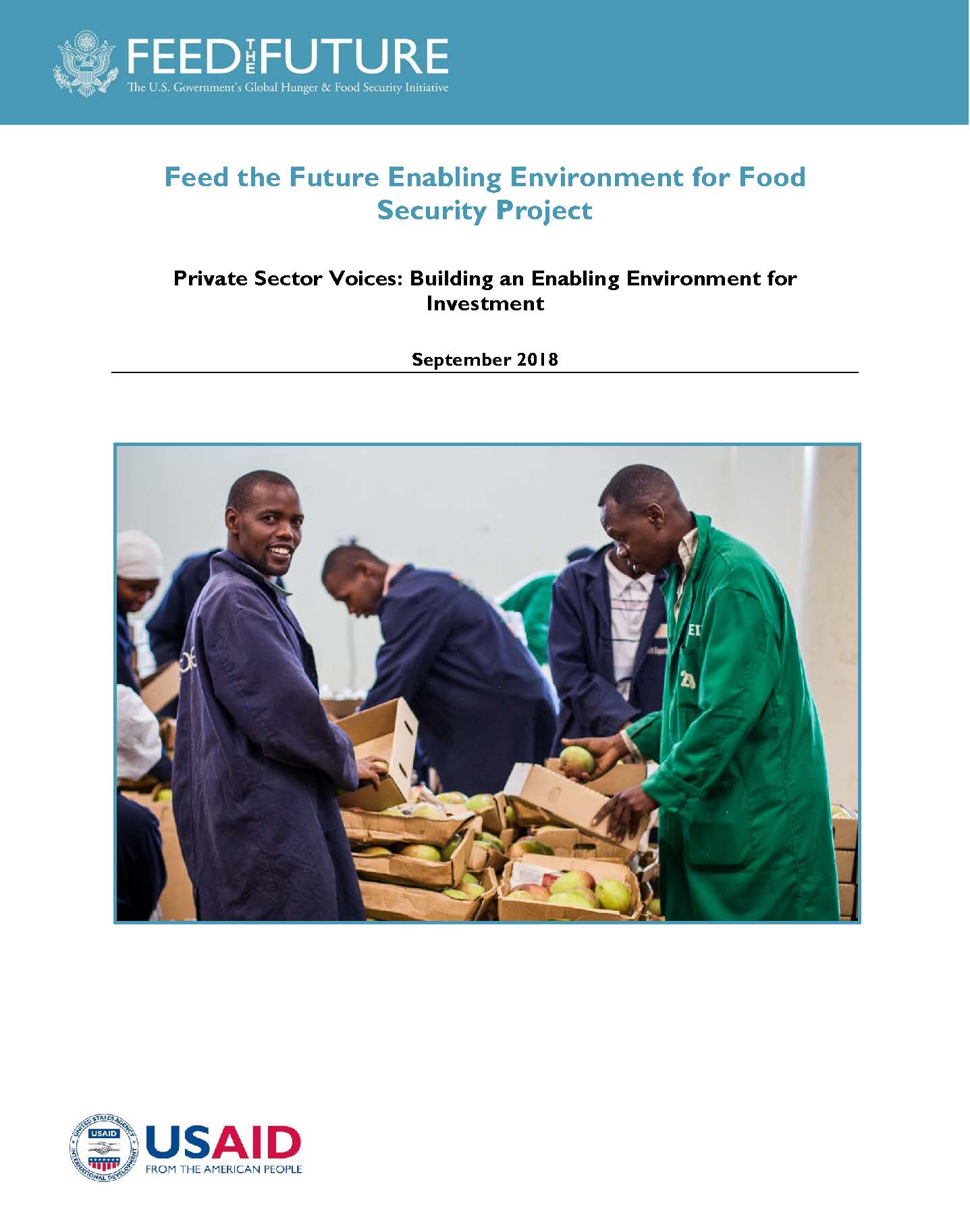2018 | Fintrac Inc.

The enabling environment — i.e., the policies, laws, regulations, and norms that govern behavior in a market system — can have a substantial impact on the viability, scale, and speed of growth of businesses, with ramifications not just for the affected businesses but also for the smallholder farmers and consumers they serve. Burdensome or unstable policies and regulations can derail even the best business plans, causing losses and setbacks, the scaling back of investment, or even bankruptcy. What makes the environment a truly enabling one, one that attracts the types of investment needed to connect smallholder farmers to markets and pull them out of poverty?
In this study, the Feed the Future Enabling Environment for Food Security project (FTF-EEFS) seeks to understand what works well for integrating smallholder farmers into market systems through the private sector and to better understand how the enabling environment impacts business decisions — positively or negatively — as they seek to serve or scale up engagement with smallholder farmers. In addition, the study provides a sounding board for private sector opinions on how USAID and other development partners can best support private sector investment and help to address the policy constraints that threaten to derail these crucial investments.
To read the technical learning note, click here.

1621 North Kent Street, Ste 900,
Arlington, VA, 22209
P 202.534.1400
F 703.276.1433
Website Photos: © mari matsuri
